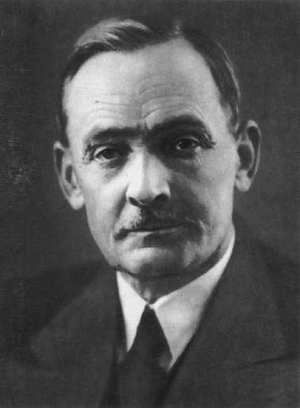
Yanka Kupala
Yanka Kupala was a prominent Belarusian poet and playwright, born on July 7, 1882, in what is now Belarus. He is often regarded as one of the founding figures of modern Belarusian literature. His works, which often explore themes of national identity, folklore, and the struggles of the Belarusian people, have had a lasting impact on Belarusian culture. Kupala's poetry is celebrated for its lyrical quality and deep emotional resonance. He played a significant role in the Belarusian national revival, and his legacy continues to influence contemporary Belarusian writers and artists.
Born on Jun 07, 1882 (143 years old)
Global Media Ratings
Countries Mentioned
| Country | Mentions | Sentiment | Dominance | + Persistence | x Population | = Reach | x GDP (millions) | = Power |
|---|---|---|---|---|---|---|---|---|
| Belarus | 3 | 8.33 | 0.27% | +10% | 9,449,323 | 28,374 | $60,000 | 180$ |
| Totals | 3 | 9,449,323 | 28,374 | $60,000 | 180$ |
Interactive World Map
Each country's color is based on "Mentions" from the table above.
Recent Mentions
 Belarus:
Kupala is mentioned as part of the cultural program for the new nation.
7
Belarus:
Kupala is mentioned as part of the cultural program for the new nation.
7
 Belarus:
Yanka Kupala is a classic of Belarusian literature whose items are being preserved by the museum staff.
9
Belarus:
Yanka Kupala is a classic of Belarusian literature whose items are being preserved by the museum staff.
9
 Belarus:
Yanka Kupala wrote the poem 'Molitva' in 1906, which is perceived as a prayer for Belarus and Belarusians.
9
Belarus:
Yanka Kupala wrote the poem 'Molitva' in 1906, which is perceived as a prayer for Belarus and Belarusians.
9
 Belarus:
Yanka Kupala's works found a special resonance with Belarusians in the project.
8
Belarus:
Yanka Kupala's works found a special resonance with Belarusians in the project.
8
 Belarus:
Yanka Kupala was a notable Belarusian poet whose works were translated by Nayden Vylchev.
8
Belarus:
Yanka Kupala was a notable Belarusian poet whose works were translated by Nayden Vylchev.
8
 Belarus:
Yanka Kupala was a close friend of Jakub Kolas, and their friendship is highlighted in the excursion.
8
Belarus:
Yanka Kupala was a close friend of Jakub Kolas, and their friendship is highlighted in the excursion.
8
 Belarus:
Yanka Kupala was featured on the Christmas ornaments sold by 'Kalyadnaya Krama'.
5
Belarus:
Yanka Kupala was featured on the Christmas ornaments sold by 'Kalyadnaya Krama'.
5
 Belarus:
Yanka Kupala is a famous Belarusian writer mentioned in Denis Dorokhov's joke.
5
Belarus:
Yanka Kupala is a famous Belarusian writer mentioned in Denis Dorokhov's joke.
5
 Belarus:
Yanka Kupala is featured on the Christmas ornaments sold in the store.
7
Belarus:
Yanka Kupala is featured on the Christmas ornaments sold in the store.
7
 Belarus:
Yanka Kupala is recognized as a symbol of Belarusian culture and his works have had a profound impact on the development of Belarusian literature and art.
9
Belarus:
Yanka Kupala is recognized as a symbol of Belarusian culture and his works have had a profound impact on the development of Belarusian literature and art.
9